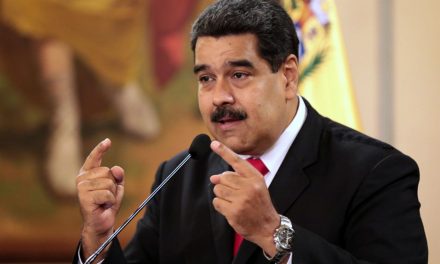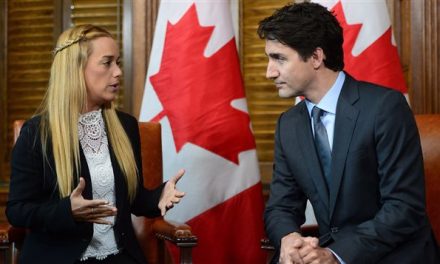Why Can’t the U.S. Left Get Venezuela Right?
by Shamus Cooke
Counterpunch.org
As Venezuela’s fascist-minded oligarchy conspires with U.S. imperialism to overthrow the democratically elected government of Nicolas Maduro, few in the U.S. seem to care.
Instead of denouncing rightwing violence that aims at regime change, many on the U.S. left have stayed silent, or opted to give an evenhanded analysis that supports neither the Maduro government nor the oligarchy trying to violently overthrow it. Rather, the left prioritizes its energy on lecturing on Maduro’s “authoritarianism” and the failures of “Chavismo.”
This approach allows leftists a cool emotional detachment to the fate of the poor in Venezuela, and clean hands that would otherwise be soiled by engaging with the messy, real life class struggle that is the Venezuelan revolution.
A “pox on both houses” analysis omits the U.S. government’s role in collaborating with Venezuela’s oligarchs. The decades-long crimes of imperialism against Venezuela is aided and abetted by the silence of the left, or by its murky analysis that minimizes the perpetrator’s actions, focusing negative attention on the victim precisely at the moment of attack.
Any analysis of a former colonial country that doesn’t begin with the struggle of self-determination against imperialism is a dead letter, since the x-factor of imperialism has always been a dominant variable in the Venezuelan equation, as books by Eva Gollinger and others have thoroughly explained, and further demonstrated by the ongoing intervention in Latin America by an endless succession of U.S. presidents.
The Venezuelan-initiated anti-imperialist movement was strong enough that a new gravitational center was created, that pushed most of Latin America out of the grasp of U.S. domination for the first time in nearly a hundred years. This historic achievement remains minimized for much of the U.S. left, who remain indifferent or uneducated about the revolutionary significance of self-determination for oppressed nations abroad, as well as oppressed peoples inside of the U.S.
A thousand valid criticisms can be made of Chavez, but he chose sides in the class fault lines and took bold action at critical junctures. Posters of Chavez remain in the homes of Venezuela’s poorest barrios because he proved in action that he was a champion for the poor, while fighting and winning many pitched battles against the oligarchy who wildly celebrated his death
And while it’s necessary to deeply critique the Maduro government, the present situation requires the political clarity to take a bold, unqualified stance against the U.S.-backed opposition, rather than a rambling “nonpartisan” analysis that pretends a life or death struggle isn’t currently taking place.
Yes, a growing number of Venezuelans are incredibly frustrated by Maduro, and yes, his policies have exacerbated the current crisis, but while an active counter-revolutionary offensive continues the political priority needs to be aimed squarely against the oligarchy, not Maduro. There remains a mass movement of revolutionaries in Venezuela dedicated to Chavismo and to defending Maduro’s government against the violent anti-regime tactics, but it’s these labor and community groups that the U.S. left never mentions, as it would pollute their analysis.
The U.S. left seems blissfully unaware of the consequences of the oligarchy stepping into the power vacuum if Maduro was successfully ousted. Such a shoddy analysis can be found in Jacobin’s recent article, Being Honest About Venezuela, which focuses on the problems of Maduro’s government while ignoring the honest reality of the terror the oligarchy would unleash if it returned to power.
How did the U.S. left get it so wrong?
They’ve allowed themselves to get distracted by the zig-zags at the political surface, rather than the rupturing fault lines of class struggle below. They see only leaders and are blinded to how the masses have engaged with them.
Regardless of Maduro’s many stumbles, it’s the rich who are revolting in Venezuela, and if they’re successful it will be the workers and poor who suffer a terrible fate. An analysis of Venezuela that ignores this basic fact belongs either in the trash bin or in the newspapers of the oligarchy. Confusing class interests, or mistaking counter-revolution for revolution in politics is as disorienting as mistaking up for down, night for day.
The overarching issue remains the same since the Venezuelan revolution erupted in 1989’s Caracazo uprising, which initiated a revolutionary movement of working and poor people spurred to action by IMF austerity measures. How did Venezuela’s oligarchy respond to the 1989 protests? By killing hundreds if not thousands of people. Their return to power would unleash similar if not bloodier statistics.




